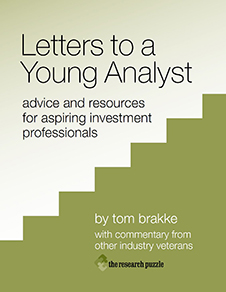
- Wednesday, September 1st, 2010
- pitching horseshoes
-
In another era, before we all had our noses to screens or could afford a trip to some far off land when we had a little time off, a holiday often meant a visit to the city park with your extended family and friends. Kids being kids, they’d want to get away as soon as they could, and would make their way to the swing set or some out-of-the-way place, depending upon their age. The old men like me, confident that others would organize the meal for later, might head off to pitch horseshoes.
As with most any game, among the players of horseshoes there are various levels of interest, involvement, obsession, and expertise. That’s true for those navigating the markets as well.
There are those who play to go along with the crowd, without a particular plan or much if any preparation. To use the horseshoe analogy, they may laughingly throw the horseshoes around when others do, but if you are in the vicinity you’d best keep your eyes open, since a horseshoe could come flying your way at any time. In reality, they might be better off trying to take advantage of the luck that supposedly accrues to someone who holds a horseshoe, since luck is really what they are counting upon anyway.
Then there are those amateurs who enjoy the sport of it all and have developed some skill. Their rules of scoring may reflect the old adage that “close only counts in horseshoes and hand grenades.” They just have to be a bit better than Uncle Joe to win, although in a bigger gathering they’ll need to step up their game even more to generate a victory against those who have been at it for awhile. They typically can’t take the time to get as good as they’d like, but they are good enough to beat anyone in the park on a given day.
But there are those who operate by another standard altogether: What’s their percentage of ringers? Toss after toss, how consistently good are they? If you get over seventy percent ringers, you’re world class. How much practice and what kind of skills does it take to get there?
And what is required to be the very best? The New York Times did a profile of Alan Francis,The New York Times | Francis is a purchasing manager when he’s not pitching horseshoes. not only the best horseshoe pitcher around (ever), but “perhaps the most dominant athlete in any sport in the country.” His ringer percentage often hits ninety percent. Certainly he must have the innate skills it takes to be successful, but I was struck by the fact that he also approaches the game differently than almost anyone else. He figures that less than one percent of top competitors use his particular way of tossing, the “three-quarter reverse.” Had he started out trying to be like everyone else, Francis might be just that today.
In attempting to navigate the markets, which kind of player are you? Which kind do you aspire to be? What are you willing to do to get there?
